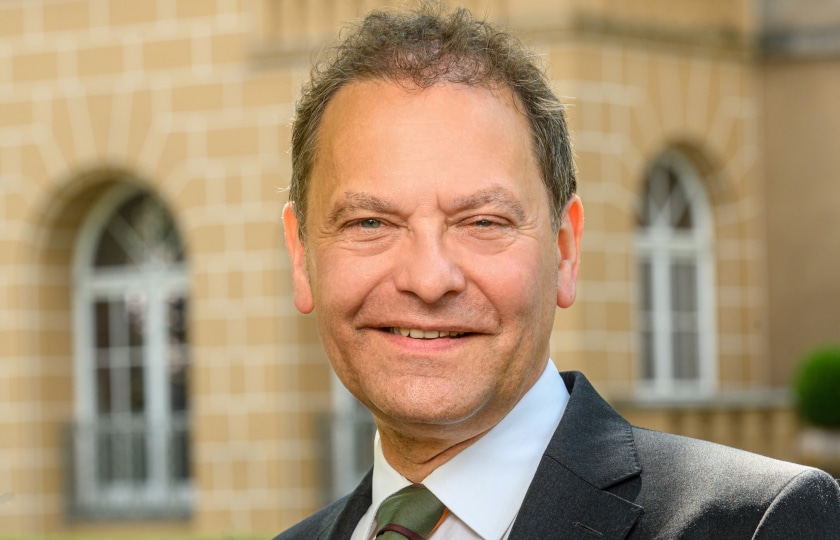How do communications change in a crisis like the COVID-19 pandemic? What role do actors from science, politics and the media take over? How do they deal with uncertainty from this situation? A project that reviewed existing studies and interviewed experts provided answers to this question.
Based on systematic literature research and interviews with selected experts from various stakeholder areas, a team from the HBI has identified communicative processes in the current COVID-19 crisis as part of the project “Communication in Crises”, which is funded by the Federal Ministry of Education and Research (BMBF). The findings have been published as a (working paper (PDF, in German) :
- Broer, Irene; Hasebrink, Uwe; Lampert, Claudia; Schröder, Hermann-Dieter; Wagner, Hans-Ulrich; assisted by Corinna Endreß (2021): Kommunikation in Krisen [Communication in Crisis]. Hamburg: Hans-Bredow-Institut, September 2021 (Working Papers of the Hans-Bredow-Institut | Project Findings No. 59) DOI: https://doi.org/10.21241/ssoar.74139
The scope of the project for the Federal Ministry of Education and Research (BMBF) extended to the role of communication in crises and thus to the communicative practices of various actors from science, politics, the media and the general public in connection with crises. The collection and evaluation of corresponding data was guided by the following questions, among others:
- How does the information behaviour of people change during crises?
- How do actors from different areas of politics, science and the media communicate crises?
- How do constellations of actors change in the communication during crises?
- What particular developments in communicative practices can be observed? (especially with regard to functional and dysfunctional aspects, e.g. the emergence of conspiracy narratives).
- What regulatory needs are being discussed in this area?
- What are the findings on the role of communication in previous crises?
To answer these questions, we assessed and systematically evaluated the current state of international research and identifed central lines of research. Besides, we conducted qualitative interviews with selected experts who represent different perspectives. Our expertise identified the further need for research and action concerning communications in times of crisis.
Summary of the Findings
The project “Communication in Times of Crises” analyses communicative processes in crises. These are understood as an event-related social uncertainty, resulting in the emergence of a temporary, dynamic social context for coping with this uncertainty. Based on systematic literature research and interviews with selected experts from different stakeholder areas, communicative processes in the current COVID-19 crisis are highlighted.
In order to systematically describe communication in crises, a figuration-theoretical approach is pursued, which understands communication in crises as an interdependent network and focuses on the actors involved in communication, their respective action-guiding orientations and communicative practices. The focus is on the specific logics of actors from the fields of:
- Public health and safety,
- Science and research,
- The public and journalism,
- Group-specific interests,
- Living environment of the individual members of society.
The perception of communication in the crisis and the different guidelines for action are examined based on existing findings from research and supplementary interviews with experts. Guided by the figuration-theoretical approach, firstly the processual character of crises and their communicative management will be identified. Guided by the figuration-theoretical approach, firstly the processual character of crises and their communicative management is elaborated. Secondly, the diversity of actors involved in the communicative negotiation of their management. And finally, the challenges that arise from the different role- and living environment-related demands, expectations and action orientations will be highlighted.
On this basis, various cross-cutting challenges for communication in crises are identified. These are described in the form of areas of tension in which communication in crisis can take place, for example between
- Consonance and polyphony,
- Warning and reassurance,
- Simplification and differentiation.
- Comprehensive information and guidance,
- Individual responsibility and regulation.
Recommendations
With regard to the question of how the nature of communicative relations between actors from politics, science, media and civil society can contribute to strengthening crisis resilience, it is recommended that communication in crises should
- Take into account all relevant actor perspectives;
- Make their own position recognisable and transparent in their respective perspectives;
- Develop and implement communication strategies that are appropriate for the target group;
- Strengthen dialogue-based communication strategies rather than abandoning them in a crisis;
- Create cross-cutting bodies or communication structures that systematically identify the communication needs of the different groups of actors and make them available to the actors involved.

Photo by Robert Metz on Unsplash













